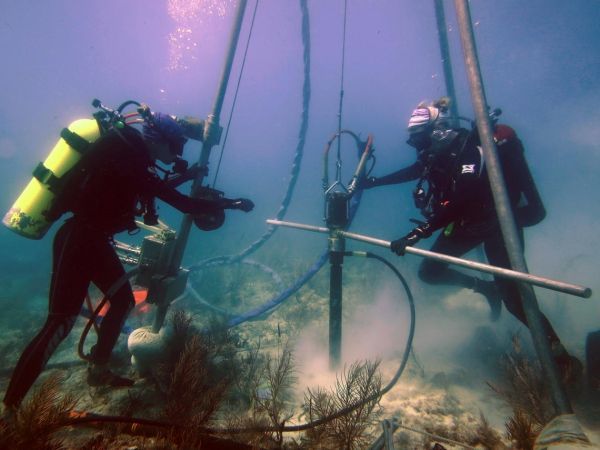The Florida Keys coral reefs stopped growing or significantly slowed their growth at least 3000 years ago and have been balanced between persistence and erosion ever since, according to a new study by the U.S. Geological Survey. The study, published in the journal Global Change Biology, also points to coral bleaching and disease outbreaks as signs that changing conditions may have recently tipped the 200-mile-long coral reef tract into a state of erosion.
USGS marine scientists based in St. Petersburg, Florida analyzed 46 coral reef cores collected throughout the Keys, reconstructing the reefs’ growth from 8000 years ago, when layers of living coral began building up on top of older bedrock, to the present day. Throughout that time, long-lasting climate cycles and associated changes in ocean temperatures have been the most important factors controlling the growth of Florida’s reefs, the scientists found. A shift toward cooler water temperatures effectively ended the reefs’ development long before the visible declines in coral health and coral cover of the past few decades, they reported.
“If you were to test a sample from the top layer of a typical Florida reef, you would most likely find that it’s between 3000 and 6000 years old,” said Lauren Toth, a USGS research oceanographer and the study’s lead author. “Florida’s reefs still had living corals after that time, they just weren’t building much new reef structure.”
The researchers examined reef core samples collected between 1976 and 2017 from Biscayne National Park in Miami-Dade County to Dry Tortugas National Park 70 miles from Key West. The scientists used radiocarbon dating— a standard technique for finding the ages of corals and other materials— and measured the amount the reef grew between the dates they had identified to create the first comprehensive reconstruction of coral reef growth along the entire Florida reef tract.
Continue reading at USGS.
Image via USGS.


